It's been strangely peaceful in New Zealand, where until Tuesday there hadn't been a new case of COVID-19 in 102 days
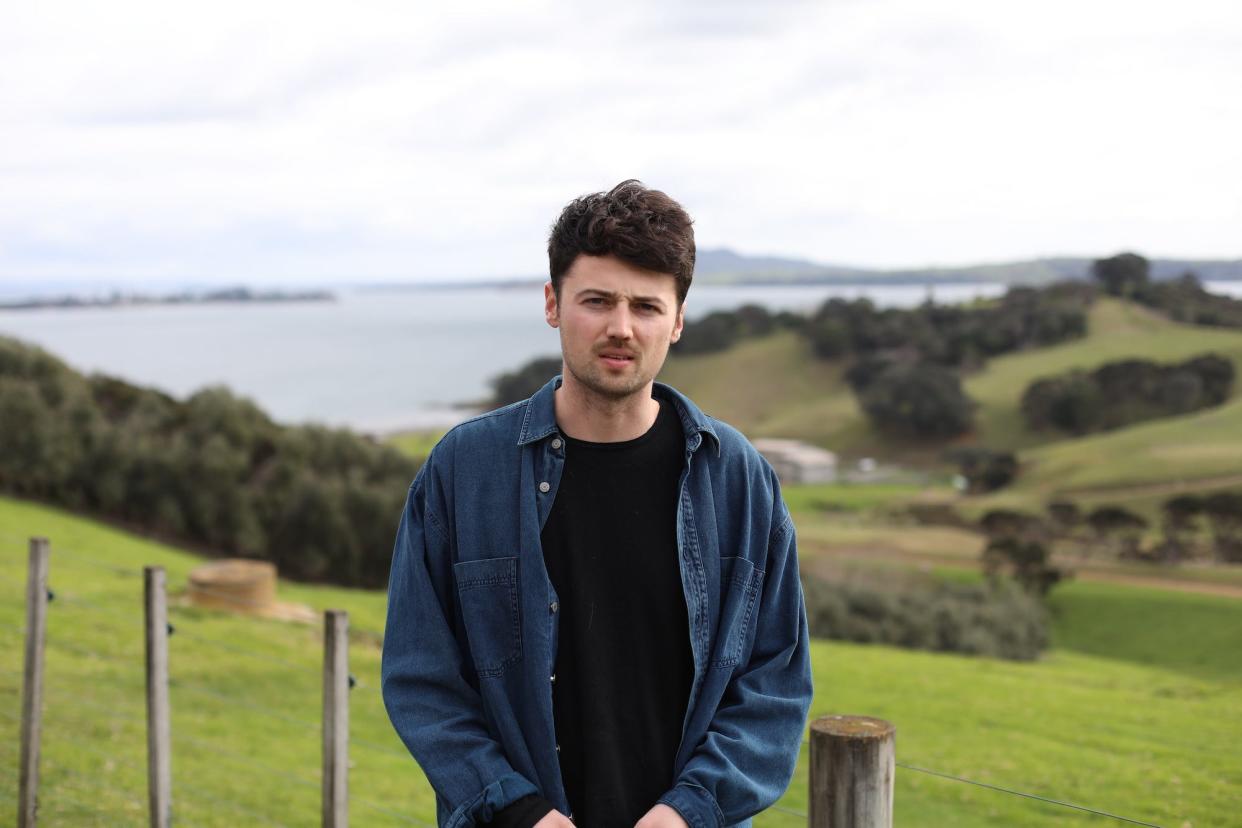
James Pasley/Business Insider
Until Tuesday, New Zealand hadn't reported a new locally transmitted case of COVID-19 from the novel coronavirus in 102 days.
Freelance reporter James Pasley has been in New Zealand since its strict lockdown began in March.
He writes about the strangely peaceful way life has carried on there, contrary to the situation in the US.
MANGAWHAI, NEW ZEALAND — One of the first signs "normality" had returned to New Zealand was when I heard helicopters overhead.
Before that it was empty skies and empty roads.
When lockdown ended at the beginning of June, helicopters resumed trips to Tara Iti, US billionaire Ric Kayne's estimated $100 million golf course that Golf Digest ranked higher than US President Donald Trump's course in Scotland.
Tara Iti is just to the south of Mangawhai, a small seaside town of fewer than 1,000 people, a little over an hour north of Auckland, the country's largest city.
I've been living in Mangawhai since late March when New Zealand went into strict lockdown. I came back home from New York City, after a brief stint in London. The house I've been living in does not have Wi-Fi, so I've been relying on a mobile phone hotspot, working with a lagging buffer. In the scheme of things, it is a glorious first world problem.
A farmer leases the fields below the house for grazing. Beyond them, there's an estuary that bustles in the summer with families, fisherman, boats, and jet skiers.
When I first got back, it was quiet and bereft of human activity, and if you didn't know about the state of the world, it might have looked like a winter lull.
Lately, there's more activity. Kitesurfers fill the waterway when the wind's blowing the right way. People walk along the edges. Things seem normal here. If you stayed off the internet and ignored the media, it would seem like the pandemic did not exist.
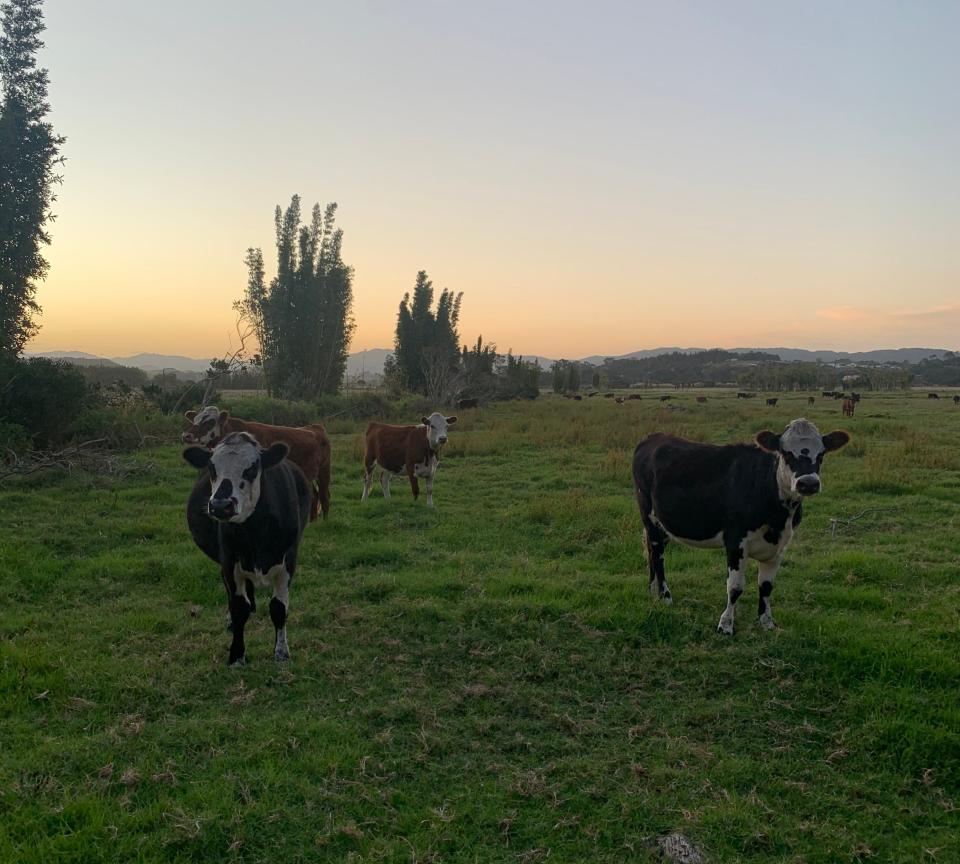
James Pasley/Business Insider
On Sunday, New Zealand marked 100 days with no new local cases of COVID-19. The helicopters were flying regularly. Golfing had resumed.
But on Tuesday evening, Prime Minister Jacinda Ardern announced Auckland was going back under its second highest level of lockdown after four new cases were discovered, without a link to overseas travel.
As of August 11, New Zealand has 1,570 cases and 22 deaths, according to data from Johns Hopkins University.
Masks had disappeared in Mangawhai because there were no cases
When I first got back, locals in town wore masks and stood in socially-distanced lines outside the supermarket. While we waited to check-out, the various levels of lockdown were discussed, as they eased, with a sense of anticipation.
Since the end of lockdown, I have not seen a mask in Mangawhai. During visits to Auckland, masks were rare, and while there have been half-hearted attempts at contact tracing in cafes and shops, few people are following the process.
Three months ago, the government said there wasn't enough evidence to back recommending masks. This week, before the new cases had been discovered, public health officials started to urge people to keep masks at home, the New Zealand Herald reported.
Lockdown ending resulted in Mangawhai going from sleepy and quiet to booming. Traffic clogs the roads on the weekends as Aucklanders escape the city for a dose of nature. The farmer's market is bustling. The secondhand store owner told me she's kept busy with new faces each weekend.
And it's not just Aucklanders. Lockdown put a stop to any potentially dangerous activities, including hunting and surfing. At dusk surfers are once again heading out after work. The hunting ban caused duck numbers to increase in the fields around the house I'm staying in, and hunters have now returned to cull them.
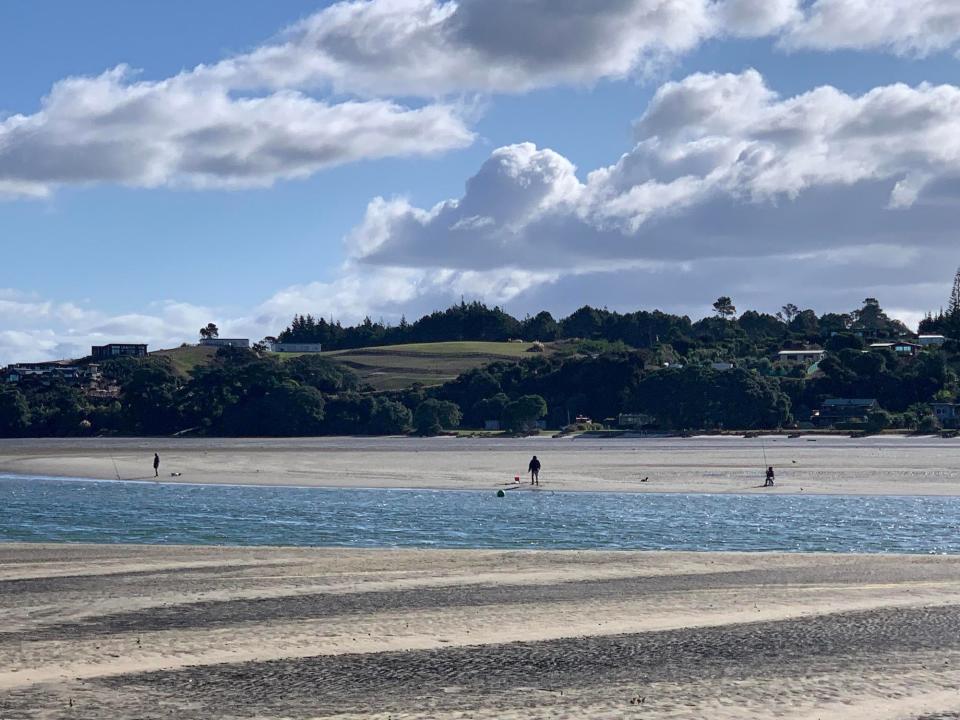
James Pasley/Business Insider
'How will they ruin this town next?'
On a Tuesday morning in July, I attended a public council meeting at the local golf club (a less exclusive course than Tara Iti) to get a feeling for Mangawhai.
COVID-19 was mentioned, since a number of new jobs were created to keep people working in the area in the wake of the pandemic. But other than that, I counted 38 people, mostly elderly, who showed up to hear about a controversial roundabout that will push up annual property charges.
"How will they ruin this town next?" one lady said to the woman next to me. Another man yelled at Kaipara Mayor Jason Smith to redirect the projector, which showed the new road plan, to a different wall so that everyone could see it. He lamented what he described as the poor public process, but Smith said it had never been necessary before, because they'd never had so many attendees.
The absurdity of a roundabout stoking controversy as COVID-19 spreads across the world was a little hard to comprehend.
But it was also amazing to me that all these people could show up without masks and not fear for their health.
In a similar vein, Ian Griffin, the Otago Museum director, posted a photo on Twitter last week showing a sea of grey heads at a seminar, which he pointed out couldn't really happen anywhere else in the world.
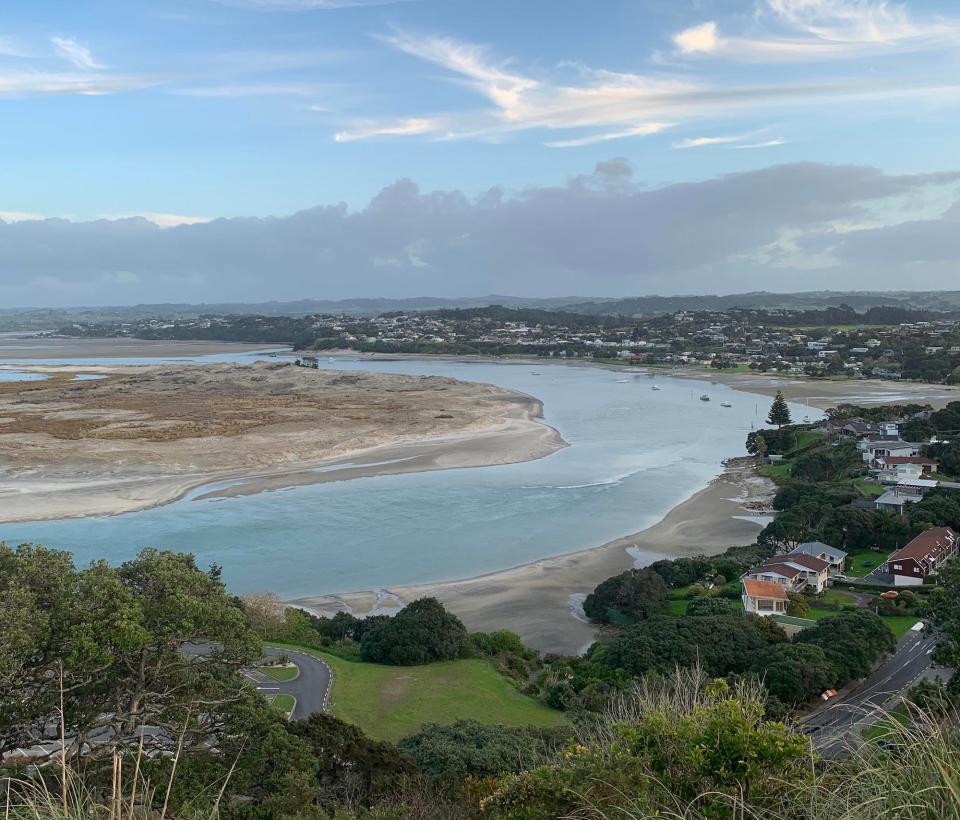
James Pasley/Business Insider
'I hope you all catch covid and die a horrific death'
About eight weeks ago, my partner had to go back to the US for work. Taking her to the Auckland Airport was a reminder of the abnormality at our borders and beyond.
We arrived early and had to wait for the single check-in to open. It was one of the only flights departing that day. Auckland airport is no LAX, but it's the largest airport in the country, and it was eerie turning up after sunset to an airport swathed in darkness, with empty buses doing loops despite no passengers.
People returning to New Zealand must complete a 14-day quarantine or managed isolation, and test negative for COVID-19 before they can leave it.
For a period in July, on almost a weekly basis someone or a group escaped mandatory quarantine. Several times it was to get to a dying loved one or to attend their funeral. After one of the early, more controversial breakouts, the military was brought in to monitor quarantine, but breakouts have continued.
One of the other main controversies was whether or not to charge people coming back into the country. Vicious online hate has been fired at New Zealanders who want to come home.
The vitriol is partly because of the risk people bring, but also an idea — inaccurate or not — that it was the better-off who left New Zealand for international experiences, and now want to come back to safety when it suits them.
Newshub's Europe correspondent Lloyd Burr posted a selection of online comments on Twitter. One comment ended with: "I hope you all catch covid and die a horrific death from it, because the world will be a better place without people like you."
—Lloyd Burr (@LloydBurr) July 23, 2020
Earlier this month, the government ended up passing a law that means only people who are returning to visit rather than to live will have to pay, Stuff.co.nz reported.
While I was in Auckland, I went to a bar to watch a couple of bands, because I could. I stood at the back of a hot room filled with young, sweaty people dancing.
At one point, between songs, the singer asked the crowd if anyone would give him a drink. There was no hesitation. Several people offered their cups. He drank then handed it back. There was no fear of transmission. There were no active cases.
Last week, the lack of Wi-Fi finally got to me. We rented a house for a week on Waiheke, known as a destination for US billionaires to hunker down during the pandemic. As far as I'm aware, I encountered no billionaires, but I did catch a glimpse of a bus stop filled with old women, which was a heartwarming sight, considering.
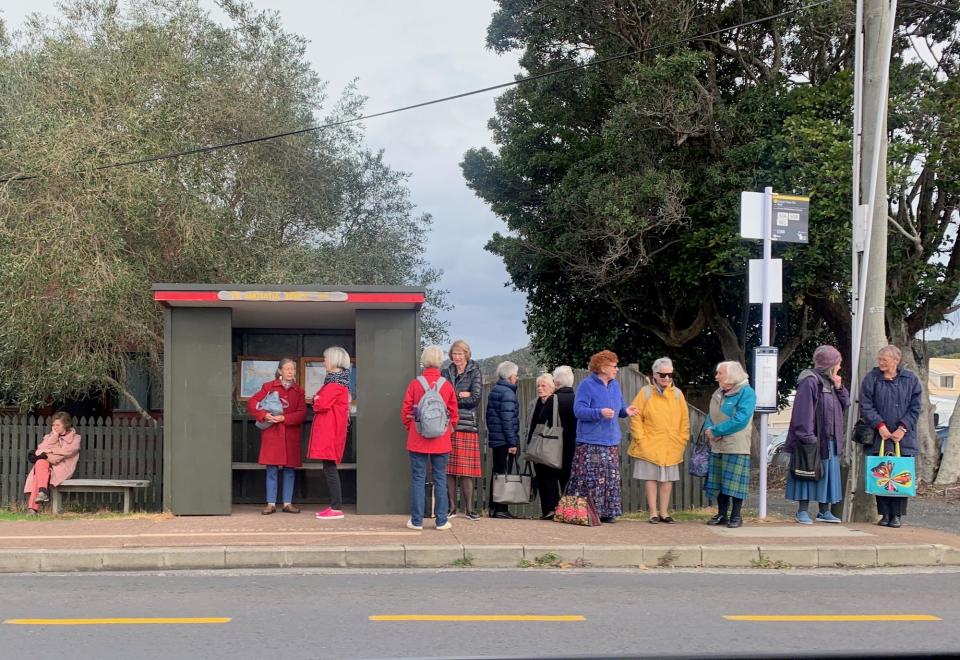
James Pasley/Business Insider
Mostly, the roads were empty, and the vineyards were quiet. It's winter, so it's not the busy season, but it still felt slow.
I heard one waiter at a restaurant say they only had one dinner booking on a Saturday night, and instead of mentioning the pandemic, she wondered if it was due to a glitch in their booking system.
New Zealand's tourism is taking a hit
New Zealand relies heavily on tourism. A government paper released in 2018 forecast the nation of 5 million would be getting 5.1 million visitors in 2024, with international annual spending to be nearly $15 billion. China was expected to be the biggest tourism market.
Now, only residents and citizens along with their children and partners can enter the country, unless someone has been granted a specific exemption, for a medical reason or if they're an essential worker.
On the upside, a large portion of the middle class travel internationally each year, and because they can't do that, they are traveling around the country. It's unlikely to be enough to offset the loss, but it's something.
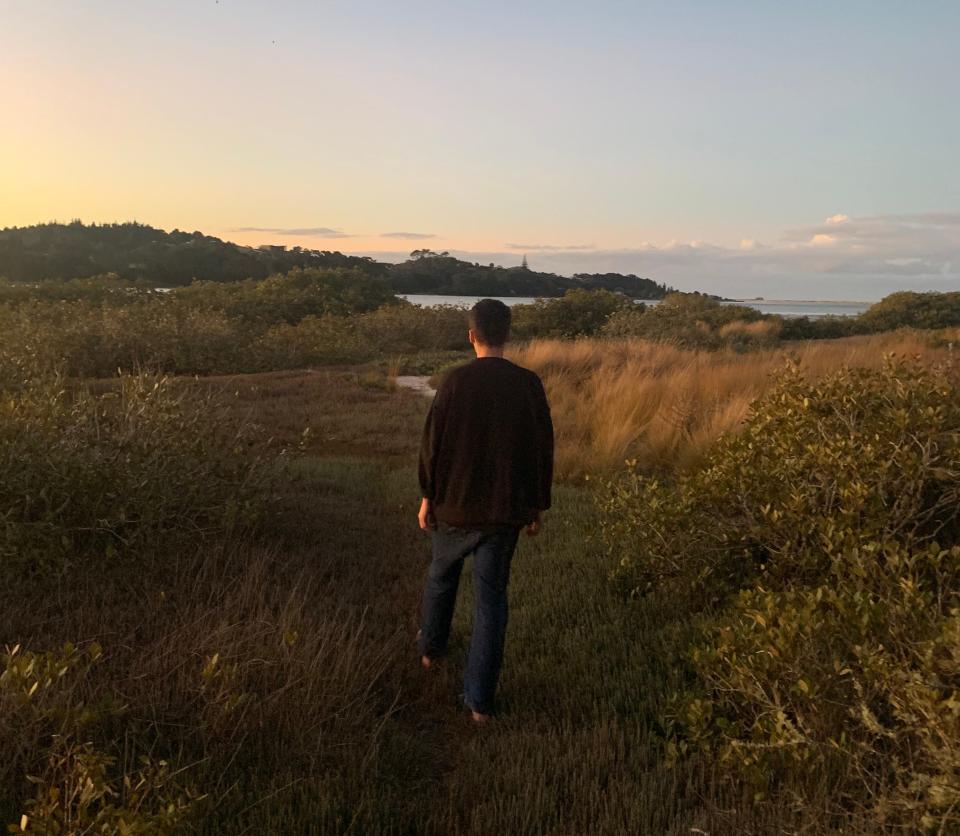
James Pasley/Business Insider
New Zealand also gets an injection of cash from international students who pay about three times more than local students for university. A government paper estimated the loss will cost education providers about $600 million, according to RNZ.
International students won't be allowed in for the rest of the year, and potentially not next year either, so universities that were already making cuts before the pandemic face an even more dire situation.
New Zealand's housing market has not noticeably suffered yet. I was hoping to find a place to live, most likely renting in Auckland, but the number of people returning has kept demand up — 300 people lined up to view a small apartment — and made moving out of the countryside more difficult than I'd expected.
As for shortages, despite the closed borders, there aren't many I'm aware of. There are reports about the pain reliever paracetamol running low, but supermarket shelves don't seem to be missing anything.
New Zealand relies on migrant labor for agricultural work and that's no longer possible, which could have a long-term impact. But the government claims people already in the country will fill the void.
One lockdown was enough — this next one might not go as smoothly
Already, lockdown feels like a long time ago, and some people discount how bad it could have been had New Zealand not imposed such stringent rules.
There are calls for the borders to open, or for easing of rules around foreign people buying land in New Zealand, most notably from former prime minister John Key.
But watching Australia's recent resurgence of cases hit home just how serious a breakout could be here, and experts warn it wouldn't take much before the virus could spread like wildfire. Professor Tony Blakely, an epidemiologist in Melbourne, warned last week that 100 cases would be too much for tracers to keep in control.
At my niece's baby shower last week, most of my family and friends were positive about how New Zealand was doing. It's hard not to be.
But there was a common concern: several different conversations ruminated on the likelihood that New Zealand will have to endure another lockdown.
There was a feeling of unease, knowing that we could not go on like this forever. And now we're here. Once was enough, but this next one might not go as smoothly.
Read the original article on Business Insider

